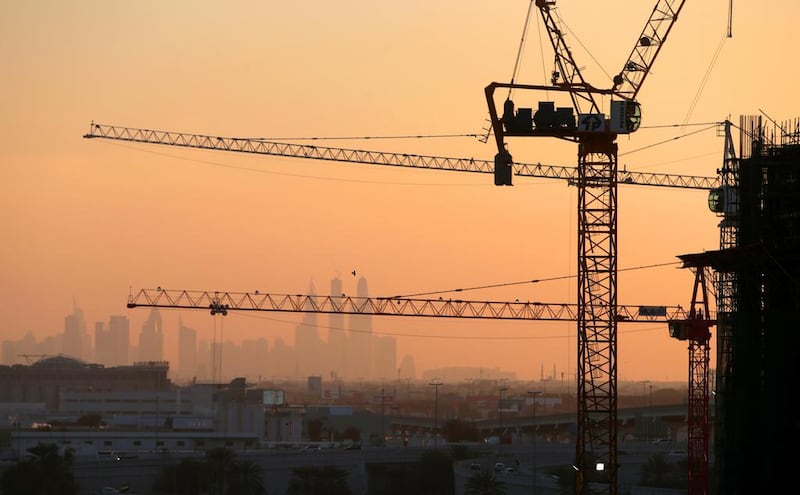The jobs market in the UAE and the Middle East appears to be weathering the downturn in oil prices surprisingly well – at least for now, according to surveys by some of the biggest international recruiting firms in the region.
In one report, put out yesterday by Hays UAE, the majority of employees surveyed across a wide swath of industries seem confident enough to expect salary increases of more than 5 per cent in the coming year, even if employers say they are not likely to match those expectations.
Another recruitment firm, Morgan McKinley, said its UAE employment monitor showed growth slowing in the fourth quarter of last year, but sees the impact of the sharp drop in oil prices having only a marginal effect on hiring so far.
“I have not seen any effect yet on hiring intentions across the vast majority of organisations I deal with,” said Chris Greaves, the managing director of Hays UAE. “I am not aware of any companies having put on hiring freezes, and in our internal business indicators – jobs registers, and the like – we are not seeing any decline in business levels compared to before the oil price declined.”
Another survey, carried out by UK polling organisation YouGov for the Dubai-based jobs website Bayt.com, found that 60 per cent of the employers it surveyed in the Middle East and North Africa region said they were likely to hire in the next three months, with 37 per cent of respondents from Arabian Gulf countries “definitely” hiring in the coming quarter.
The overall picture is one where the fast pace of growth in the region may have slowed, but one where the momentum – and more economic diversity for some countries, including the UAE – has kept the outlook positive.
Even in the oil and gas sector, the anecdotal evidence is that there has been only a slowdown at the margins.
“When you get what has so far been a short-term dip in oil prices, the oil tanker takes a long time to turn around, so most of our clients in the sector are maintaining employment levels,” said Trefor Murphy, the managing director of Morgan McKinley UAE.
Yet, there are signs of a slowdown.
Morgan McKinley’s “professional jobs snapshot” grew by 16 per cent in the fourth quarter of last year compared to a year earlier, but the quarter-on-quarter growth was just 2 per cent.
Mr Murphy said that the slower pace was due to the oil price slump. “Without the oil price falling, that quarter-on-quarter growth would have been 10 per cent,” he said.
The oil price decline, however, is a double-edged sword. “What people have to remember is that for those whose business uses oil as a raw material – including petrochemicals, refining – or for intensive users of energy, that cost has halved in the last six months,” Mr Greaves said.
That will help some sectors, even some of the region’s economies.
The real estate sector is usually an early barometer of economic sentiment.
“In construction, if there is a six-month dip everything stops,” said Mr Murphy.
There is no official data available for the sector and the anecdotal evidence is mixed. The residential property sector, for example, shows signs of softening, though it is not clear whether that is driven by oversupply or weaker demand. Big projects, such as the Louvre in Abu Dhabi, are proceeding as planned.
One factor helping the Arabian Gulf countries, and the UAE in particular, is a diversification of its economic base.
According to the YouGov survey, the expectations for job growth in the UAE is twice that of some countries of the region.
amcauley@thenational.ae
amcauley@thenational.ae
Follow The National's Business section on Twitter





